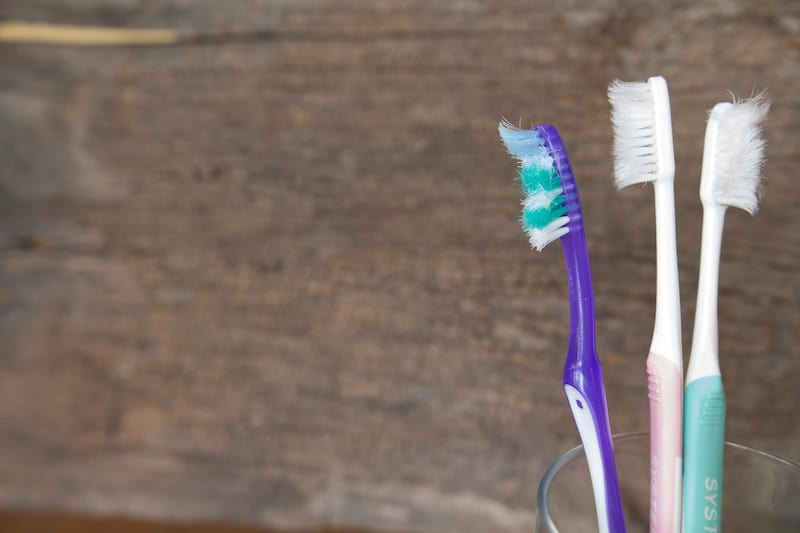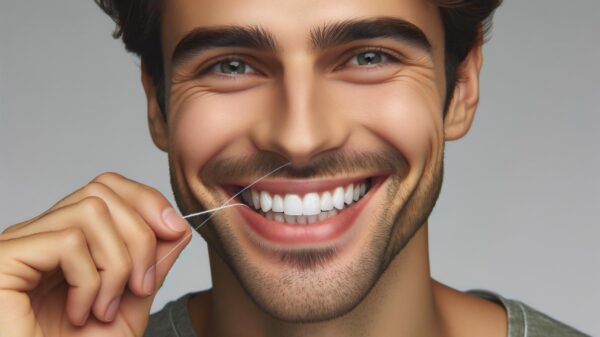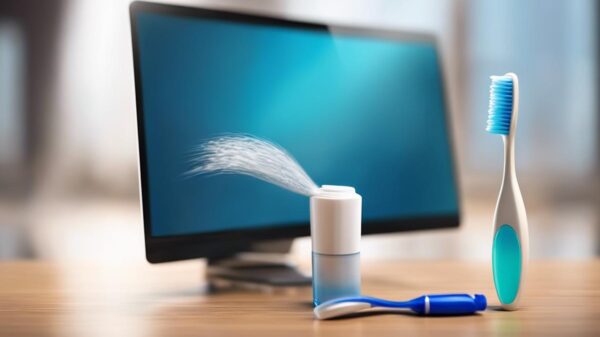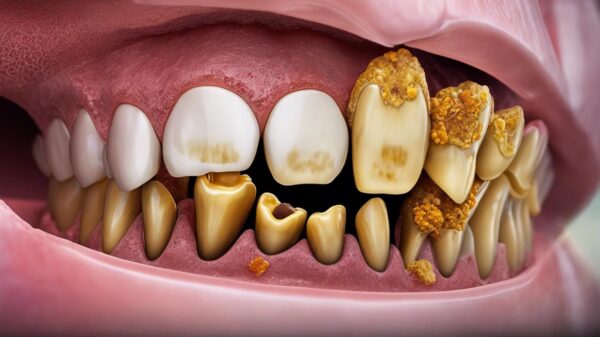Understanding Why Toothbrushes Fray Quickly
After replacing my toothbrush over and over, I began to wonder why I was going through toothbrushes so quickly. So, I did some research to find out why my toothbrush was fraying so quickly, and this is what I found out.
So, why does my toothbrush fray so quickly? A fast-fraying toothbrush head is a sure sign that you are brushing incorrectly. The issue could be less of a technical issue and more of a tendency to apply too much pressure while brushing. However, there is no doubt that you should change your brushing habits.
Your toothbrush is not simply wearing out quickly because you bought a bad toothbrush. In fact, this is probably one of those things that you are the only one to blame for. The issue here is bad brushing habits. By changing your brushing habits, you will not only save yourself money on toothbrushes but also improve your overall oral health and ensure the health of your teeth lasts for years to come. Believe it or not, there is a correct way to brush your teeth. Once you apply better methods, you will see better results, and your toothbrushes will last much longer.
How Brushing the Wrong Way Ruins Your Toothbrush
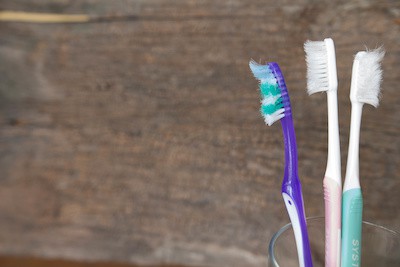 A fast-fraying toothbrush is not normal. Even the cheapest toothbrushes should last a decent amount of time before they begin to fray. If you find that every toothbrush you buy begins to fray within the first few days or even weeks of buying, this may be a sign that you need to adjust the way you brush your teeth. Luckily, you have a very tangible way of keeping track of the effectiveness of your changes.
A fast-fraying toothbrush is not normal. Even the cheapest toothbrushes should last a decent amount of time before they begin to fray. If you find that every toothbrush you buy begins to fray within the first few days or even weeks of buying, this may be a sign that you need to adjust the way you brush your teeth. Luckily, you have a very tangible way of keeping track of the effectiveness of your changes.
The most likely culprit to blame for a fast-fraying toothbrush is brushing your teeth too hard. Sure, your teeth get squeaky clean really quickly, but this is not the best approach to brushing your teeth. In fact, you should only apply a light amount of pressure when brushing. It can be very tempting to brush too hard, which is one reason dentists recommend using a soft to ultra-soft toothbrush.
Another reason your toothbrush may be prematurely fraying is that you are brushing for too long. Again, just like brushing too hard, this may seem counterintuitive. Surely you should brush as long as you can stand, right? Wrong. This is actually one of many common teeth cleaning myths! Brushing your teeth for longer than two minutes does not add to their cleanliness. Instead, brushing for too long only prematurely wears out your toothbrush and can even cause damage to your teeth and gums.
Brushing too long or brushing too hard can both be categorized as simply overbrushing. While you may have the best of dental-hygiene intentions, overbrushing can do long-term damage to your teeth and gums, and luckily your toothbrush is taking the brunt of the damage and giving you a warning. You should adjust your habits before you risk gum recession, cavities, or premature enamel wear. Begin practicing brushing softer and brush for no longer than two minutes. This may take time, but you will eventually adjust to these new, healthier practices.
How To Adjust Your Teeth Brushing
First and foremost, set a timer. You should not be brushing for longer than two minutes and you only need to brush twice a day. For some, this will likely be the easiest adjustment to make. Once you have tackled the time management aspect, move on to your toothbrushing technique. Begin by focusing on not brushing too hard. This will likely make a major impact on your toothbrush wearing out prematurely. Once you begin brushing softer, pay attention to the bristles on your toothbrush. Are they wearing quickly or have they slowed down? It may be helpful to keep an unused toothbrush on hand for a visible comparison.
Once you have mastered the most obvious culprits for toothbrush wear, try to develop even more healthy brushing habits. Have you gotten used to using too hard of a toothbrush? Dentists recommend using a soft or softer for peak gum health. If you are using medium or hard, you likely are overbrushing as a result. These bristles may last longer and not show you the bad results of your overbrushing as quickly as a soft toothbrush would.
How To Hold a Toothbrush
The way you hold your toothbrush could also be a factor in the health of your teeth and gums. You should have a slight angle up on your brush to allow the bristles to clean your gum lines. However, when cleaning near the gum lines, it is most important to lighten your pressure as to not push your gums back. An easy way to lighten the pressure of your brushing is by lightening your grip on the toothbrush. Many individuals with tendencies to over-brush grip the toothbrush as if they are afraid of dropping it.
In reality, the best way to hold a toothbrush is like a pen. If this feels awkward and ineffective, you can adjust, but avoid holding the toothbrush with a tight grip, as this tends to encourage overuse of force when brushing. Remember, you only need to apply a light amount of pressure to remove plaque from teeth. It may feel good and clean to exert excess force, but the negative long-term effects outweigh the positives. Eventually, you will adjust to this after practice and create healthier habits for dental hygiene.
If you struggle to hold your toothbrush properly, chiropractic care might be the answer! You may be experiencing some form of spinal misalignment. A visit to a Tulsa chiropractor may help to alleviate this issue, allowing you to hold your toothbrush with ease.
How Long a Toothbrush Should Last
Generally speaking, the average toothbrush should last around three to four months. This timeline will obviously vary depending on several different factors. The type of toothbrush will have an effect as well as the habits of the brusher. If you find that your toothbrush is wearing after only one month, this is a sign that you should adjust your brushing habits.
If after four months you find that your brush has hardly worn at all, it is still a good idea to replace your brush as this helps to control bacteria and germ spread. For the same reason, you should also consider replacing your toothbrush after being sick.
The Importance of Flossing
So, you have finished brushing but your teeth still do not feel clean enough to you. This means it is time to floss. Daily flossing is a powerful tool in the fight for dental and oral health. Flossing removes food that gets lodged between teeth, scrapes stubborn plaque away from spots that are hard to reach with a toothbrush, and is a crucial step in preventing conditions like gum disease and gingivitis.
With these tips and tricks for proper brushing, we hope that your toothbrush can last longer without fraying and potentially damaging your smile! As always, if you have concerns about your brushing habits or techniques, it is always wise to discuss these concerns with your dentist.
Related Questions
Do electric toothbrushes work better than standard toothbrushes? Many studies have shown that electric toothbrushes when used properly, do in fact do a better job of cleaning teeth. While many individuals express concern that an electric toothbrush may cause further harm to their gums, this is not the case. When used correctly, electric toothbrushes offer a gentle, controlled approach to effective teeth cleaning that can not be matched with a standard toothbrush. With the prices of electric toothbrushes lower than ever, now is a great time to make the switch and see for yourself.
How often should I go to the dentist? The general recommendation is that the majority of individuals should visit the dentist for a cleaning twice a year. This is a great way to keep your teeth clean year-round, but also gives the chance for the dentist to do an inspection and keep a closer eye on your overall oral health. Dentists can check for signs and issues like gum disease, gingivitis, and even cancer.
Should I brush my tongue? Have you ever eaten a blue slushie or candy and taken a look at your tongue only to find that it now matches the item you just consumed? This is visual evidence that the tongue holds onto the things that touch it and pass by it. While a blue slushie may not be the biggest concern your tongue faces, your tongue will just as easily hold onto harmful bacterias and germs. For this reason, you should always brush your tongue while brushing your teeth.
Many toothbrushes feature a tongue scraper on the backside of the head that allows you to gently scrape across the top of your tongue, removing layers of bacteria and buildup. Once complete, follow up with an antibacterial mouthwash to ensure all of the bacterias in your mouth are taken care of and enjoy your newfound dental health.
Thank you for visiting Modern Dental Hygiene! Find more oral health tips here.



